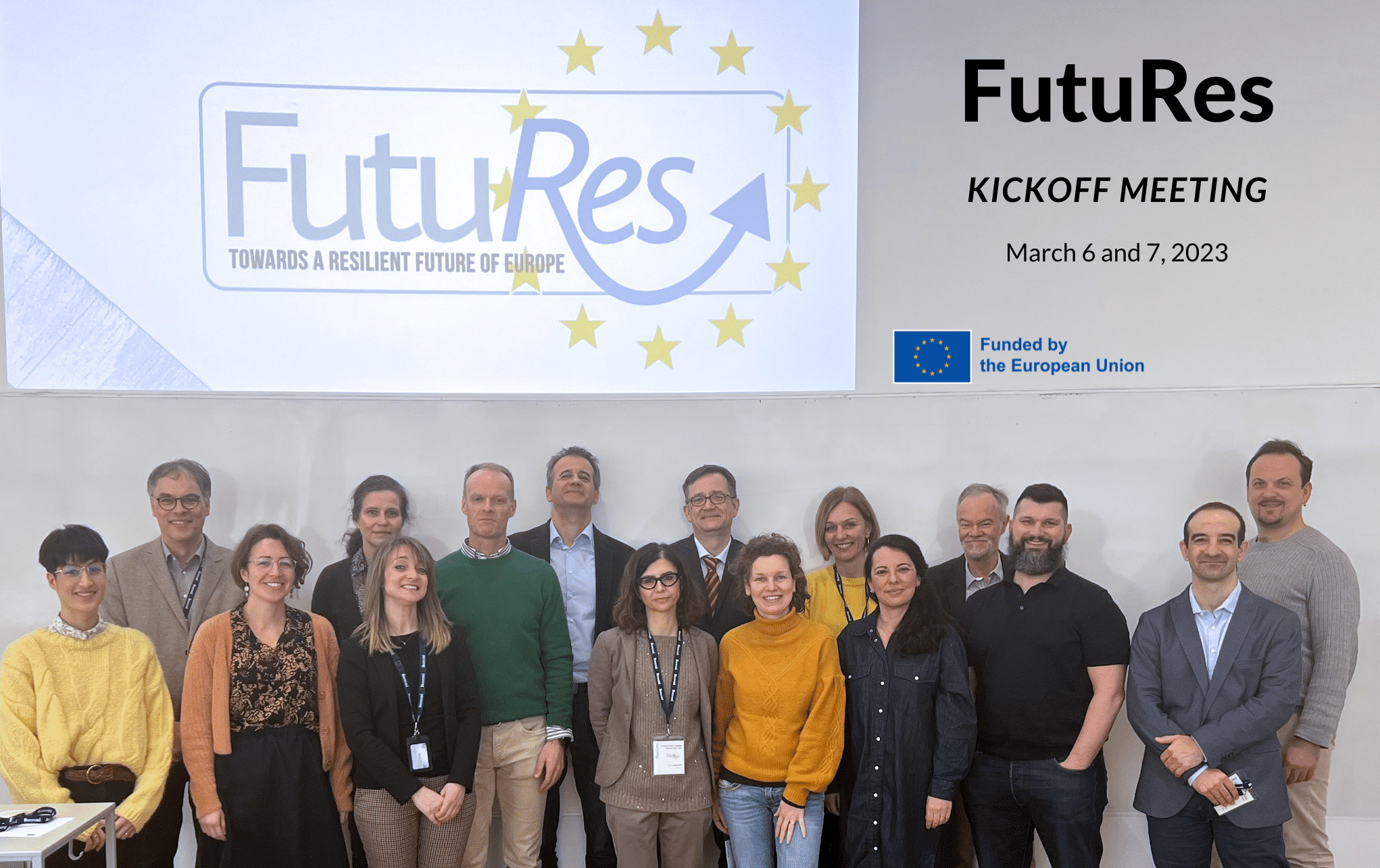
What does resilience in older people mean? How can we strengthen it while ensuring their rights are respected? This is what the new EU-funded project FutuRes, kicked off last March, will explore. As a partner in this project, AGE Platform Europe will address the aspects of human-rights and non-discrimination.
From 6 to 7 March 2023, we attended the Kick-Off meeting of the Horizon Europe-funded FutuRes project, where we met the professionals who are going to work on the project for three years. “FutuRes – Towards a Resilient Future of Europe” intends to conceptualise the meaning of resilience for older persons from a life course perspective and human rights-based approach.
Implementing a human rights-based approach in resilience and demography
Part of AGE’s role will be to implement a human rights-based approach in the project. But how would a human rights-based approach look like when addressing the issue of resilience towards older people? In a nutshell, the concept of resilience should never violate human rights while States have the obligation to respect, protect and fulfil the human rights of all individuals, and that includes older people. Resilience should contribute to empower older people as rights holders.
Another dimension of the human rights-based approach is equality and non-discrimination. As explained by the coordinator, Arnstein Aassve, Professor at the Bocconi University, in an article on Population Europe’s website: ‘Equality and empowerment are key elements of a demographic agenda. They have consequences on economic growth, productivity and competition – and thus on society’. He further explains how the triple burden that falls on women: work, children bearing, and care for older parents, as well as the lack of investment into public infrastructure impacts fertility, hence the demographic agenda.
The gender dimension of the project
Gender will play a prominent role in the project, notably in explaining the concepts and roles of gender equality, and equity. Additionally, a number of resources exist on the correlation between gender and resilience, and more specifically on the importance of applying a gender approach in addressing resilience. The project recognises that the life course approach is gendered, notably through investment, employment, family histories and key life transitions. A gender approach is needed in assessing the concept of resilience and creating resilient policies.
Follow the project on Twitter: @futu_res – The website will be operational soon
For more information on the FutuRes project, please contact:
- Project Manager, Ilenia Gheno at ilenia.gheno@age-platform.eu
- Human Rights Officer and Research Project Office, Apolline Parel at apolline.parel@age-platform.eu






